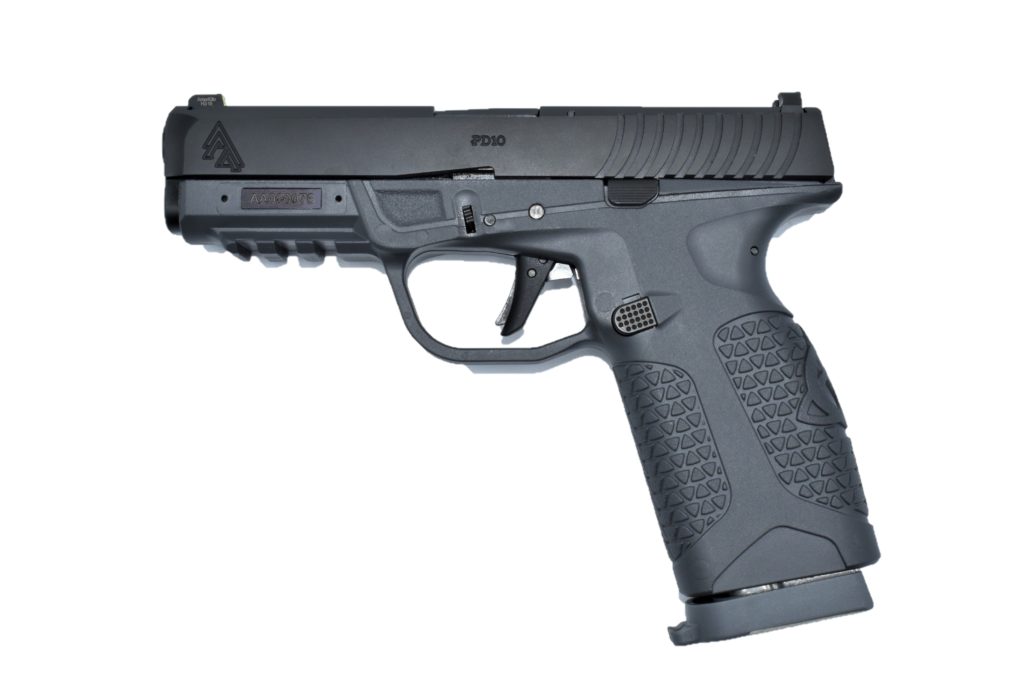
It began with the concept by Rob Pincus for an ideal concealed carry firearm and ended with the Avidity Arms’ PD10 which releases this month and begins shipping in February. In between the beginning and the end result of a production gun ready for market were changes of company structure, business plans, vendors, unavoidable delays, and a pandemic.
An ideal carry pistol, according to Pincus, needs to be built around these three concepts: carryability, shootability, and reliability. The last concept is self-evident. You want the pistol to work when you need it to work without failure every time. Both carryability and shootability deal, in part, with the size of the pistol. A full-size pistol with an 18+1 or even a 20+1 capacity is going to be heavy, hard to conceal, harder for smaller hands to grip (without interchangeable backstraps), and is better suited for law enforcement, competition, or the range. Likewise, too small of a pistol, while easier to carry, will be harder to grip and shoot accurately. This led Pincus to specify a slim, single-stack, 10+1 capacity, with a 4-5” barrel, and that allowed a grip with all fingers. The pistol, he went on to add, should be polymer, striker-fired, in 9mm, easy to field-strip, with rear sights that allowed one-handed cocking.
It is interesting to note that this is the first defensive pistol designed and brought to market by a defensive shooting instructor. Pincus left full time law enforcement in 2001 and has spent the vast majority of the twenty years since that time developing and conducting defensive shooting courses, with a student list that includes high end military units, police agencies from all around the US and Europe, and tens of thousands of concealed carriers. It makes sense that he should have some valid ideas about defensive pistol design. He also contributed significantly to the final design of FK BRNO PSD Pistol, which earned the NRA Golden Bullseye for Handgun of the year in 2020.
In the end, the production model of the PD10 meets Pincus’ requirements. Here are its specifications:
- Caliber: 9mm
- Action: Semi-automatic/striker-fired
- Capacity: 10+1
- Barrel Length: 4″
- Frame: Gray Polymer
- Magazine: 10-round stainless steel 1911 body, proprietary follower, and polymer floor plate.
- Sights: Steel, wide rear notch w/ front square
- Claw rear sight
- Optional slide cut version for red-dot optics with Holosun 507K/Shield RMSc
- Aggressive rear slide serrations
- Ergonomic, textured grip
- Safety index point on frame for positioning of trigger finger
- Safety: Integrated trigger, firing pin block
- Loaded chamber indicator
- Overall Length: 6.94″
- Width at widest: 1″
- Overall Weight: 18.8 oz.
- ISONITE QPQ Coating
As noted, there have been changes in the corporate structure of Avidity Arms since Pincus began developing this pistol in 2013. While originally envisioned as a stand alone company, the project actually started within Eagle Imports but that changed when Mike Sodini, Rob’s original collaborator and former President of Eagle Imports, left them in 2018. Fast forward through the Covid-19 pandemic to February 2022. It was at that time that Joe Worley of AlphaTech, Inc. of Fletcher, NC joined the ownership team of Pincus, Sodini, and Chuck Usina of Ancient City Shooting Range of St. Augustine, FL. Chuck, Pincus’ longtime friend had been helping the project informally with his gunsmithing and mechanical know-how from the start and formally joined the team when the company moved to Florida in 2019. The addition of Joe Worley accelerated final development of the PD10 because he brought with him a high-tech, ISO 9001, company that had state of the art machining capabilities and experience as a supplier to the firearms industry. Worley had been impressed with the design of the PD10 and wanted to be more than just a contract manufacturer of parts.
This past September, Randy Miyan, Executive Director of the Liberal Gun Owners, and I were invited by Pincus to visit the Alpha Tech facility (the new headquarters of Avidity Arms) and to test fire some of the prototypes. Given that the factory is literally 5 minutes from my house, I was thrilled with the invite. After getting some insight on the development of the PD10 and the work being done on it at Alpha Tech, we toured the plant. They had the full range of high-end manufacturing equipment including CNC machines, robots, electrical discharge machining (EDM) cutting machines, lathes, Bridgeport milling machines, and the like.
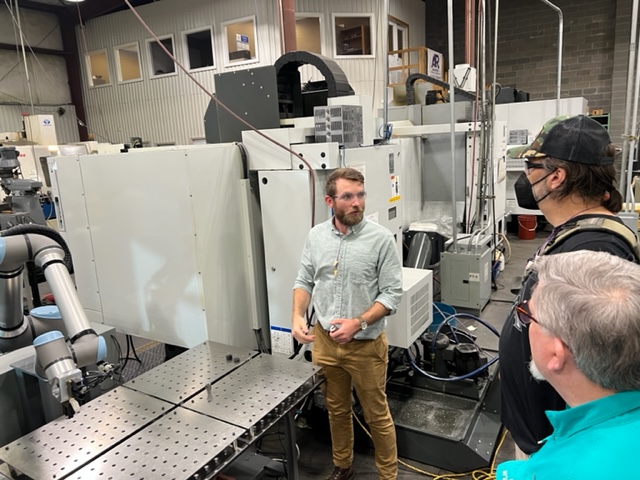
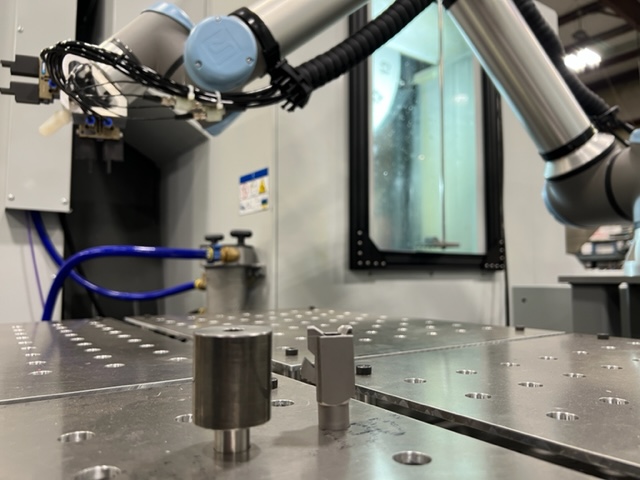
After touring the factory, we adjourned to their small outdoor firing range to fire the prototypes of the PD10. My first impressions were that the pistol was easy to control, it fit my smaller hand with short fingers well, it didn’t have much muzzle flip, it was accurate, and I really liked the sights. The prototypes had the I.C.E. Claw rear sight (also designed by Pincus about a decade ago) which was all black and the front sight was an Ameriglo™ lumisquare™ with Tritium™ insert. It made it easy to concentrate on the front sight.
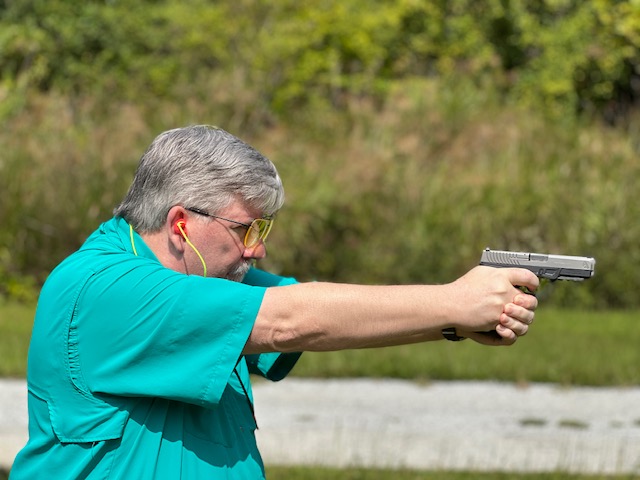
In mid-December, I returned to the Alpha Tech facility to meet with Pincus and the team at Alpha Tech. I also met Chuck and Krista Usina for the first time. This visit offered a chance to participate in a multi-day endurance test that was being conducted to take two production specification samples past 5000 rounds. All the metal parts of the PD10, with the exception of a few springs and the magazine bodies, are now being manufactured by Alpha Tech and the complete pistol is 100% US made. Changes from what I saw in September include coating internal parts for wear and lubricity and replacing the polymer backplate with a steel backplate. In addition, they now had an optional optics cut slide for red dot optics. As noted in the specs, they use the Holosun Optics 507K / Shield RMSc footprint.
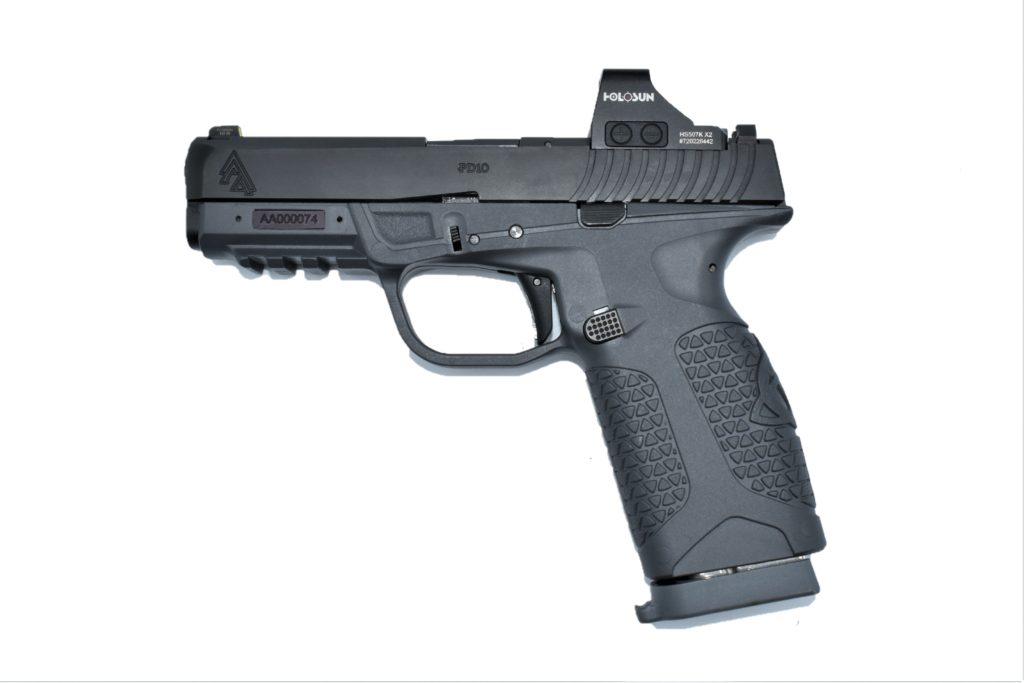
Joe Worley emphasized two major things about the manufacture of the PD10. First, there are no MIM (metal injected molded) parts in any component. The metal parts are all machined from high-grade billet or stamped. Second, instead of using stock roll pins, they precision grind all their own pins for best fit and function. This takes tolerances from +/- .002 to +/-.0001 or 20 times more precise.
After meeting in the plant, I went down to their range to meet with Pincus and Cannon Dillon who is the project manager for the PD10. They were in the process of durability testing the PD10. The goal was 5,000 rounds per pistol. I got to shoot a few mags through one of the pistols that had a Holosun red dot on it.
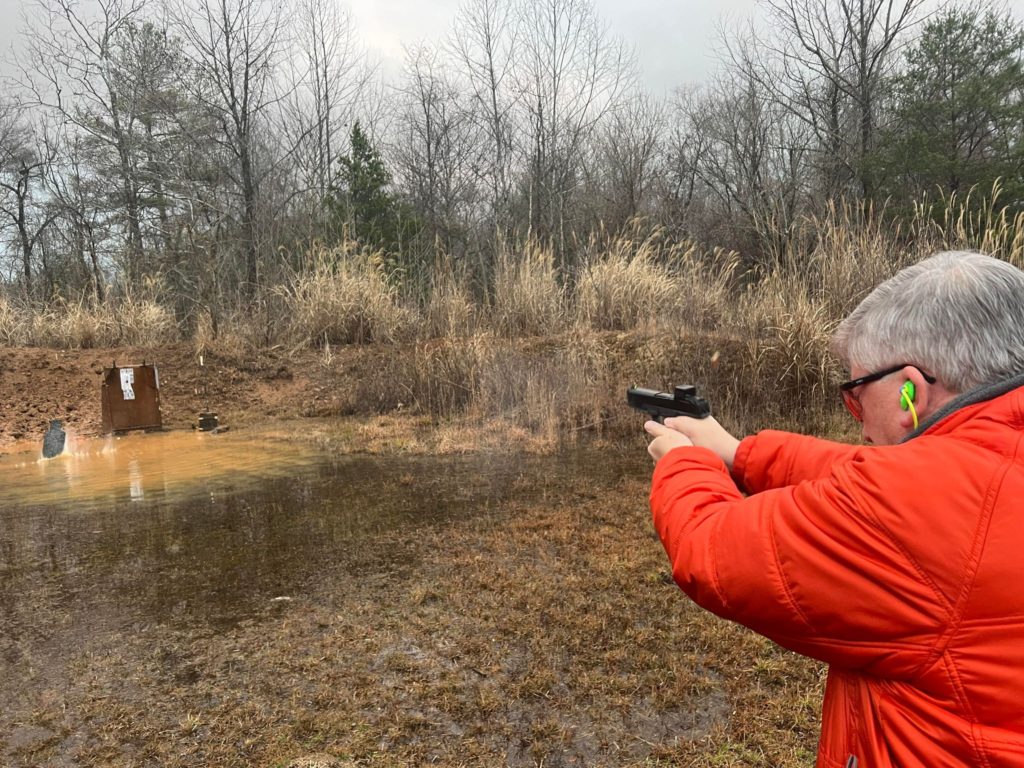
While taking a break, there was some discussion on whether the PD10 would be shown at the upcoming SHOT Show. I learned that it will be featured it will be shown at the Davidson’s booth (72317) as they will be distributing the PD10-OC. This has great implications for the general public in that they will be able to take advantage of Davidson’s Gallery of Guns to purchase the PD10. This means you can have the PD10 delivered to your local FFL with no transfer fee because, in essence, you bought it from the FFL. From my own parochial perspective, I love the North Carolina connection in all of this. Davidson’s, while now headquartered in Arizona, was founded in my hometown of Greensboro and now will be distributing a North Carolina-made pistol.
A carry pistol needs a holster and the PD10 will have them available from three different holster makers. Leather holsters for outside waistband, inside waistband, and appendix carry will be available from JM4 Tactical of Abilene, Texas. G-Code Holsters out of Burgaw, NC will be making the Kydex holsters for the PD10 in their Phenom Stealth and the Synchron models. Finally, hybrid holsters will be available from TacRig of Shorewood, OR. The shell can be used either OWB or IWB. All three companies will have them available in either right or left handed versions and they will be available directly from those manufacturers or through the AvidityArms.com website before the first pistols are shipped in February.
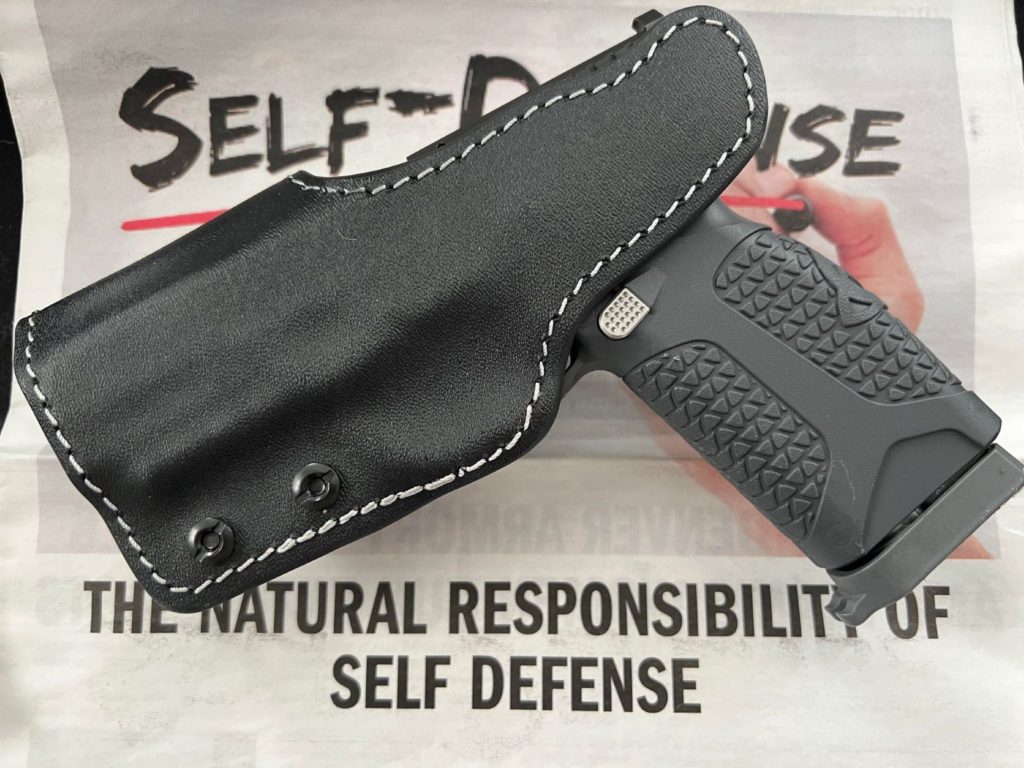
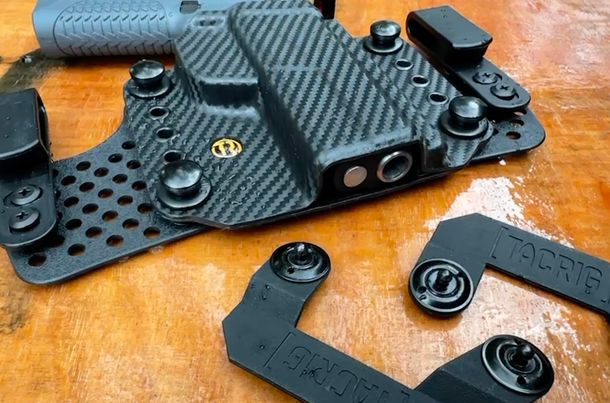
Pricing has been set for the PD10. The MSRP for the standard PD10 will be $599. The optics cut version will have a MSRP of $625. Given the minimal price differential, if it were me, I’d go with the optics cut version just for the versatility. Street prices will probably be a bit less.
In conclusion, I liked it and intend to buy one. This is not because it is being made in North Carolina or that I was given a chance to shoot both the prototype and the pre-release production models. I liked it because it felt good in my hands, it shot well, and it was accurate.


Must the trigger be pulled for disassembly?
I don’t think so but I will check to make sure.
Bert – I was wrong. I asked Rob Pincus and he said you do have to pull the trigger to disassemble it.
This pistol looks very much like a Steyr M series- M-9 or M-40.
https://www.classicfirearms.com/steyr-pistol-semi-auto-40-cal-factory-new-2-mags-accs/
I’ve had no use for Pincus ever since he came out in favor of more gun control laws.
Then don’t buy one.
Just got a chance to shoot the PD-10, grip feels good in the hand , like the sights and considering light weight of pistol very little muzzle flip. All in all very good shooting pistol.